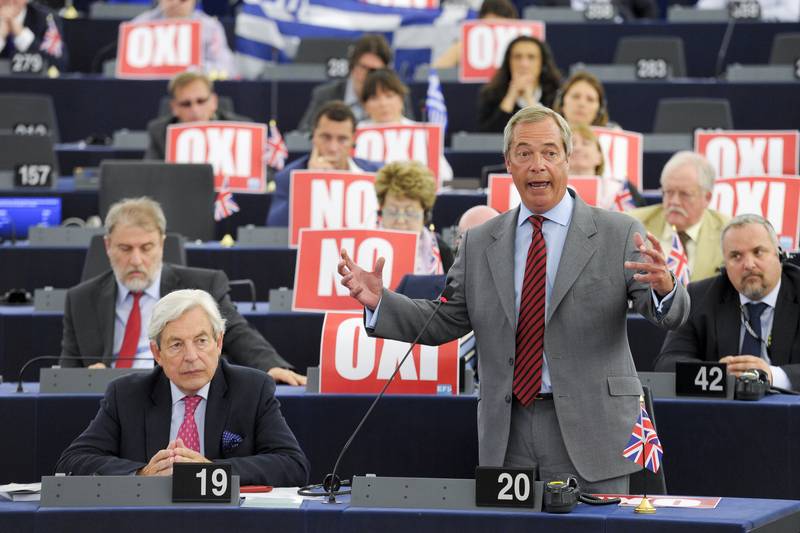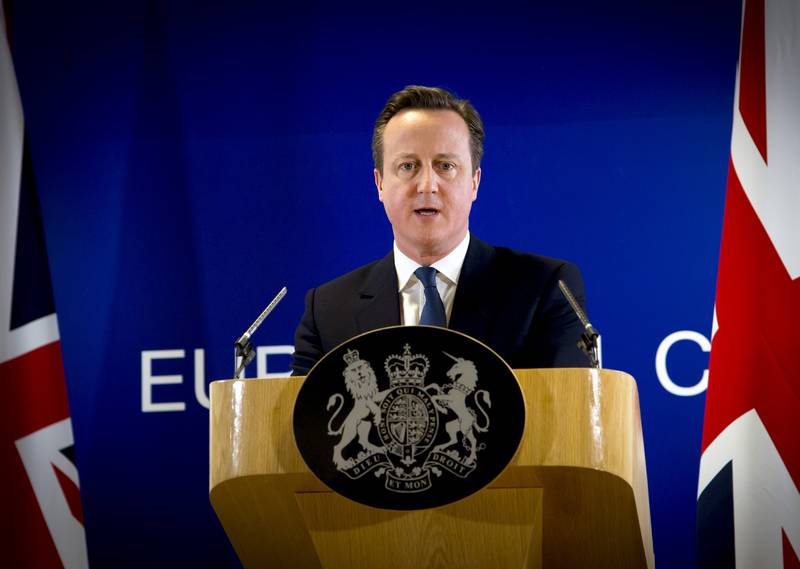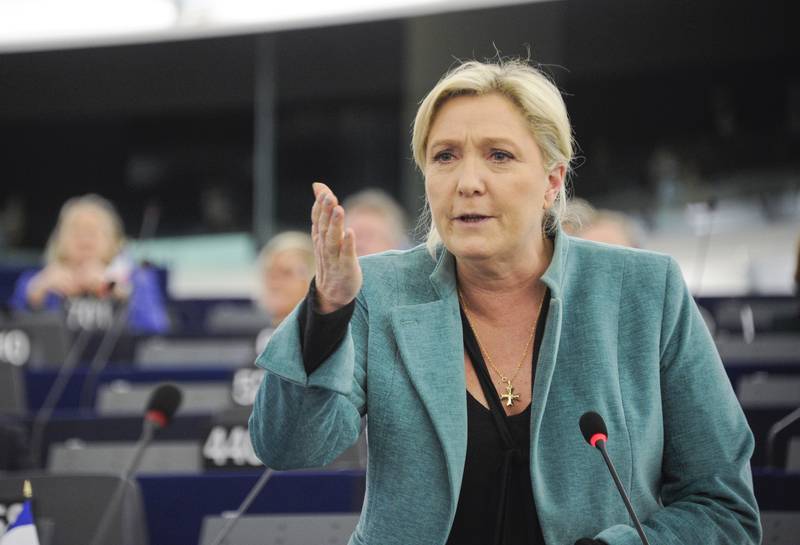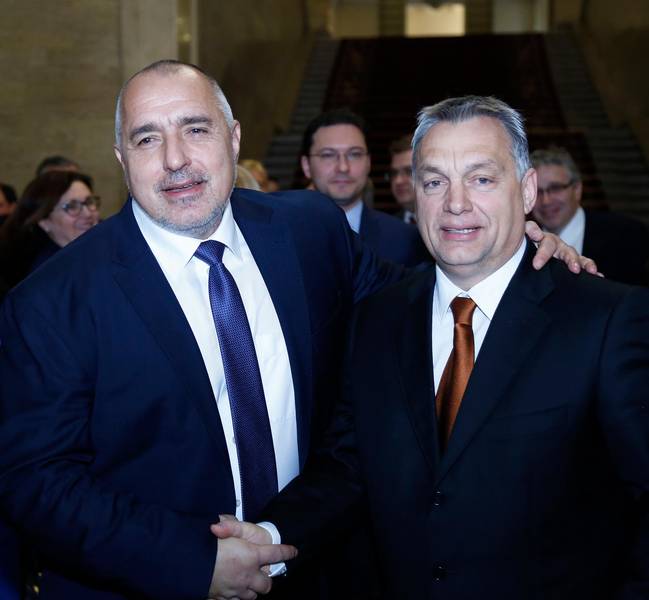Is There a Future for the European Project?
Adelina Marini, April 30, 2016

“Et tu, Brute?” would Julius Caesar ask Austria today, after, at the first round of the presidential elections, the far-right Freedom Party came back to the political scene with a bang. The party’s candidate Norbert Hofer came out first and the chances of him being the next president of Austria are far from negligible. Local media comment that nothing will be the same from now on on the Austrian political scene. The wind of change started blowing in Austria a few months back when the Austrian government started doing a U-turn since the summer. Back then Vienna was the main ally of Berlin in preserving the image of the European Union as a liberal centre of tolerance, which feels compassion towards refugees from Syria and other places of armed conflict worldwide. However, when the country started to overflow with refugees, due to the refusal of a large portion of the other Union member states to demonstrate solidarity and take up their share of the burden, Austria began sounding for retreat.
16 years later
Do you recall the year 2000, when that same party, only led by the late Jörg Haider blew up the then half-sized European Union with its results at the parliamentary elections and its inclusion in the government? At the autumn of 1999 elections the party won 27% of the votes. Its leader was infamous for his Nazi preferences and extreme statements. His participation in the government led to a total isolation of Austria in the EU. Back then even the United States threatened to sever their relationship with Vienna if the party is not removed from power. A lot of time has passed since then. The euro was making its first steps and the euro area crisis was still far in the future. The Union consisted of just 14 members with similar perceptions for values, democracy, and rule of law. Internet was not present in every home yet and globalisation was just in the beginning for Europe. There were refugees back then too, from the disintegrating in blood Yugoslavia, but they were civilizationally acceptable. Or were they?
16 years later there is hardly a country in the EU that doesn’t have a political power with extreme views being parliamentary represented, or at least noisy enough. Although there are nuances between the different parties in the different countries, they now have a common denominator – Euroscepticism. Nowadays, this term does not, however, describe this phenomenon well enough. It is no longer just about scepticism towards the European project and its reflection on national identity, but a true resistance against the EU and its community policies. The leader of the euroresistance is Great Britain. Over the last five years London has led a fierce policy of boycotting any possible community solutions. The first large “success” of Great Britain was the common European budget, which for the first time got lowered as an absolute value, although the Union is now larger (with the accession of 4-million Croatia).
UK blocked the adoption of new, stricter fiscal rules, whose aim was to strengthen the euro area in the peak of the crisis in the currency block, which led to the adoption of an intergovernmental agreement, which became known as the fiscal compact. British PM David Cameron was a stone in the European Council’s shoe, turning every summit into a British national cause, until, at the end, he shocked everyone by announcing a referendum on the United Kingdom’s membership in the EU, which is going to be held on June 23. It got to this escalation of euroresistance thanks to the rapidly growing  support for the nationalist United Kingdom Independence Party (UKIP), led by the charismatic MEP Nigel Farage.
support for the nationalist United Kingdom Independence Party (UKIP), led by the charismatic MEP Nigel Farage.
Actually, it is important to note that his national rise started exactly from the European Parliament, where until recently only marginal political players went, and thus oftentimes EP policy differed widely from national priorities. It is no longer the case. The EP reflects much more national attitudes, as shown by the latest European elections. The result is more than good for a party, which is otherwise marginal in the political sense, but on the other hand has mighty media support.
There is euroresistance all over the continent. In Finland, the former True Finns” party, now just Finns is a second political power, which is even represented in government. The party won the Finnish voters' trust using anti-immigration rhetoric. The far-right political formation came out of oblivion thanks to the euro area crisis. Their first large triumph was in 2011, when the party ranked third with the cause of not supporting the euro area bailout programmes. In neighbouring Sweden, the nationalist party Sweden Democrats is also a third political power. Sweden is the country, which took in a huge number of migrants per capita, but regardless of this the mainstream parties are successful so far in keeping the Sweden Democrats isolated.
In Denmark, the Danish People’s party ranked second at last year’s parliamentary elections, but does not participate directly in government. It does, however, support in parliament the minority government of PM Lars Løkke Rasmussen. The Danish example shows that it does not matter exactly what your participation in government is, after the People’s party recently requested that the same referendum as in Great Britain is held in Denmark as well. Denmark is the second state after the United Kingdom, which enjoys the most exceptions from European law. Although Scandinavian states are not the largest ones in the EU, I chose to begin with them, for they are the most coveted places by all migrants – both within the EU, and outside. Their past economic successes made them very influential in setting the EU’s economic and fiscal courses.
In France – an integral part of the EU’s engine – the far-right National Front party has long been a thorn in the traditional political parties’ side, but under the leadership of Marine Le Pen the party returned to the scene again, thanks to the weak rule of President François Hollande and the refugee crisis. The party was close to setting a new record in its political history at the local elections last year after winning almost 28% of votes at the first round. The front is an adversary to the euro, the refugees, and sympathises with Russian President Vladimir Putin, who often finances the party with loans. At the second round, reason prevailed and the party again shrunk to its common size of recent years. Regardless, it is a serious threat in the presidential elections next year. Whether reason will prevail again then depends on many factors, the most important of which will be the outcome of the British referendum and how will the EU react to it.
The other part of the European twin-engine – Germany – is also not immune to euroresistance. At the local elections in March the eurosceptic party Alternative for Germany even ranked second in some provinces. The party began its history with resistance against the euro, but it was marginal back then. The refugee crisis turned out to be a mighty catalyst for its political rise, which is now evident in Berlin’s actions – the pushing through of laws has began, which limit the access of migrants to the welfare system and which are taking a much tougher position towards the integration of refugees. Hard times have come in Germany for satirists too, after Chancellor Angela Merkel agreed  that Jan Böhmermann shall be put to trial because of his satire addressed at Turkish President Recep Tayyip Erdoğan.
that Jan Böhmermann shall be put to trial because of his satire addressed at Turkish President Recep Tayyip Erdoğan.
At the same time, in Greece, the far-left party SYRIZA is ruling together with the far -right Independent Greeks party. At places, the mainstream parties succeed in muting the extreme parties, but they do it by becoming them. Such is the case in Hungary, where Fidesz, attempting to save itself of the threat of Jobbik, adopted their ideology. The same happened in Great Britain, where it reached the point where the EC boss at the time José Manuel Barroso stated in a public debate in the European Parliament that he no longer sees any difference between Cameron’s Conservatives and Farage’s nationalists. Those are the most flagrant examples, but the trend is ubiquitous. Hungary is the country which led the Eastern flank of the EU towards a mighty euroresistance. Until recently the bad boy of the EU, Viktor Orbán, was isolated, but he now has serious followers.
The eurosceptic party Law and Justice came back to power in Poland and from day one began a fierce battle with the EC. Bulgaria is now also suffering from acute euroscepticism with the right-wing party GERB started turning from heavily pro-European into a more and more loyal ally to Viktor Orbán. The catalyst was the refugee crisis. In Croatia as well, a heavily conservative government came to power, but as of yet it has no eurosceptic inclinations. Its conservatism is purely national. It also has a regional aspect. It must be noted, however, that to Serbia’s political scene returned the radicals of Vojislav Šešelj, who recently got shockingly acquitted by the Former Yugoslavia War Crimes Tribunal on allegations of war crimes and genocide. The Serbian Radical Party has a marked eurosceptic profile. Actually, the largest Serbian Progressive Party of Prime Minister Aleksandar Vučić has often been mistakenly named pro-European.
The misconception comes from Vučić placing Serbia’s EU membership at the head of national priorities. His views, however, on a number of issues differ from the European ones, starting with values and his lack of understanding of the concept of rule of law, media freedom, and the treatment of minorities, and ending with the country’s foreign policy orientation. Belgrade firmly refused to impose sanctions on Russia, despite PM Vučić making it crystal clear that this will have to happen someday, but there is no concrete date. Apart from that, Serbia is not going to recognise Kosovo’s independence, which could turn out not being such an issue, having in mind that five EU member states have also not recognised it, but relations with Kosovo are a part of the key Chapter 35.
Having in mind the Serbian mentality, it is not difficult to imagine that if it does become a member of the EU Serbia will be of those that would rather organise resistance to one legislation or the other, than show solidarity. At the moment, the love of Vučić for the EU is due mainly to German Chancellor Angela Merkel. If she steps down from the political scene, it is very likely that Serbia will be overrun by mighty eurosceticism. Let us not forget that Vučić recently admitted that the EU is no longer as attractive as it was before. By the time Serbia approaches membership, the EU will probably be something entirely different, which will be determinative to the political environment in Serbia itself.
There are liberal islands in the EU here and there, but in general liberalism is now running towards extinction, and it is fundamental. Liberal democracy is even a key value. How did it get to here? Geopolitics, stupid! The EU has often compromised in key Union decisions with geopolitical realities. Today more than ever. The dynamism of EU development has sharply accelerated after the fall of the Berlin wall. Romanticism prevailed, which overshadowed many of the deep problems that are currently surfacing. Euroscepticism feeds on civilisation clashes. Whether it will be another bailout loan to a country, which is in a crisis due to bad government, or it will be the welcoming of civilizationally different refugees, a non-working judiciary, creating an internal European migrant wave, or slow economic catching up with the richer – it is all food for those, who believe  that shutting down borders and even tearing away from the EU will be better. All this is aided on a grand scale by the Internet, which increased media speed and competition.
that shutting down borders and even tearing away from the EU will be better. All this is aided on a grand scale by the Internet, which increased media speed and competition.
At the moment, the EU suffers from the clash between its ideology and reality. The Union was created on the ruins of the Second World War as a peace project. Its goal has always been to ensure that that war will never happen again. That is why it was awarded the Nobel Peace Prize. Unification happened geographically, but mentalities and values remained disunited and moving ever further from each other. Political cycles in liberal democracies are too short for the long-term processes of convergence – economic and spiritual. This is killing the project, and with it the perspective for peace. Until recently, federalisation was seen as the sole solution, but having in mind the different political cultures and the already strong euroresistance, it would rather turn into a problem than a solution. Moreover, the return of national sovereignty is seen more and more often as the alternative.
What is the solution?
EU leaders have to have a very serious talk. They need to answer the question why was in the year 2000 the Austrian Freedom Party completely unacceptable, and nowadays it has clones in almost every member state, which are left freely and not condemned to participate in governments. Even in the USA, which threatened Austria with isolation 16 years ago, one of the strongest candidates for president is the ultra-right nationalist, populist, xenophobe, and dictator-wannabe Donald Trump. Back then the EU did not possess supranational instruments for fighting such phenomena, but member states gathered as one and instituted bilateral diplomatic blockades. And today, European political parties tolerate in their ranks parties, whose beliefs differ from the charters of the European families.
Besides, leaders must, as early as June 24 (after the British referendum) begin a conversation about the future – can we and if yes how are we to move forward together? Is it possible for political elites to ask long-term questions in short-term campaigns and place the national and European interests above the purely party ones? The British referendum campaign shows that this is extremely difficult. Impossible even, as was demonstrated by the campaign for the Ukrainian referendum in The Netherlands recently. A positive example, however, was the referendum campaign in Scotland.
What is the solution then, when the memory of mutual destruction has paled? The answer might be hiding in the euro area. Integration there is strongest and no one has as of yet asked to exit it, for the economic and social consequences would be extremely serious. A proof for this are the efforts made and the price paid for Greece to remain in the currency block. What connects these countries is much more than what separates them. There is agreement amongst them on the way forward – namely further integration. Differences are mainly on when it should happen. Until now, integration in the EU was driven mainly by crises or was entirely conceptual. An example of this is again Austria. Thanks to Jörg Haider and the election triumph of the Freedom Party in 1999 the EU made a step towards Article 7, and later, because of Hungary, made another step toward this article. The euro is a purely conceptual integration step. Its survival, however, led to crisis integration.
In other words, the EU should resort to a new integration regime – both based on crisis and be well conceptualised. High stakes integration. Given the current situation in national parliaments, however, this could prove difficult.
Translated by Stanimir Stoev
 Federica Mogherini | © Council of the EU
Federica Mogherini | © Council of the EU | © Council of the EU
| © Council of the EU Luis De Guindos | © Council of the EU
Luis De Guindos | © Council of the EU